-
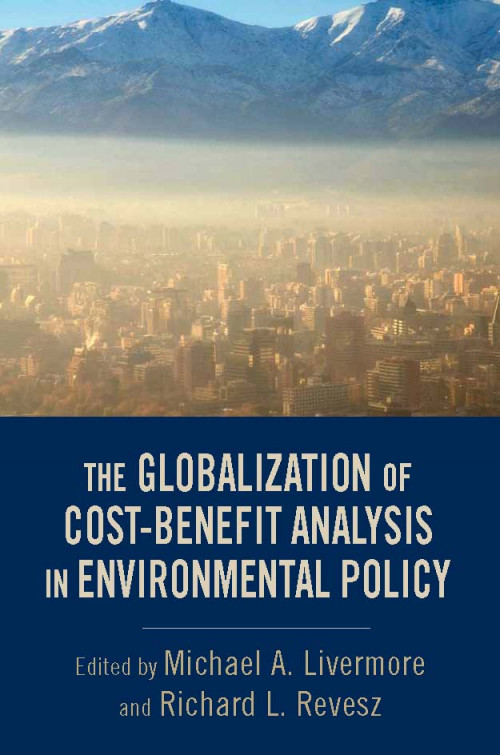
The Globalization of Cost-Benefit Analysis in Environmental Policy
The Globalization of Cost-Benefit Analysis in Environmental Policy examines how cost-benefit analysis can help developing and emerging countries confront the next generation of environmental and public-health challenges. Analysis in the book examines the growing reach of cost-benefit analysis; presents relevant case studies where cost-benefit analysis has been incorporated in the Americas, Africa, Middle East, and Asia; and includes a discussion on the conceptual and institutional issues that must be addressed when adopting cost-benefit analysis in developing and emerging countries. By providing both theoretical and practical discussion of this important new tool, this book makes a valuable contribution to the fields of environmental policy, development studies, and environmental law.
-
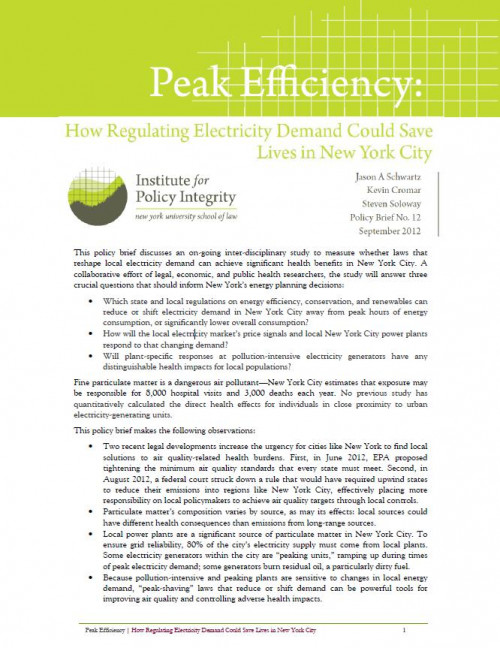
Peak Efficiency
How Regulating Electricity Demand Could Save Lives in New York City
This policy brief discusses an on-going inter-disciplinary study to measure whether laws that reshape local electricity demand can achieve significant health benefits in New York City. A
collaborative effort of legal, economic, and public health researchers, the study will answer crucial questions that should inform New York’s energy planning decisions -
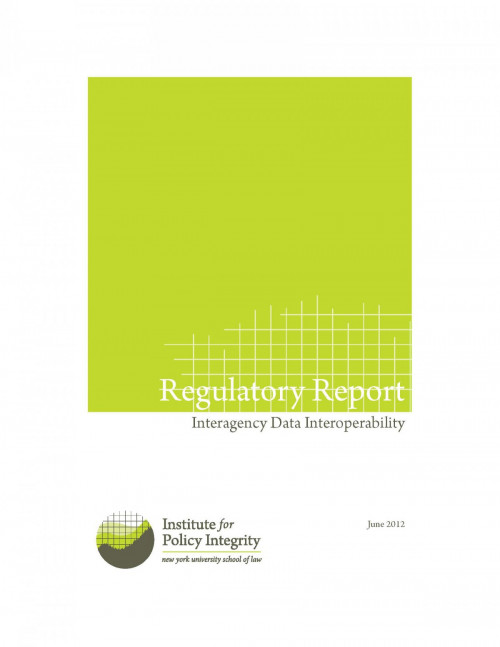
Regulatory Report
Interagency Data Interoperability
This report shows what could be accomplished if straightforward changes were made to improve the way agencies interact. By sharing data, using the same metrics and coordinating on target populations, agencies could improve the impact of social services and stretch every tax dollar.
-
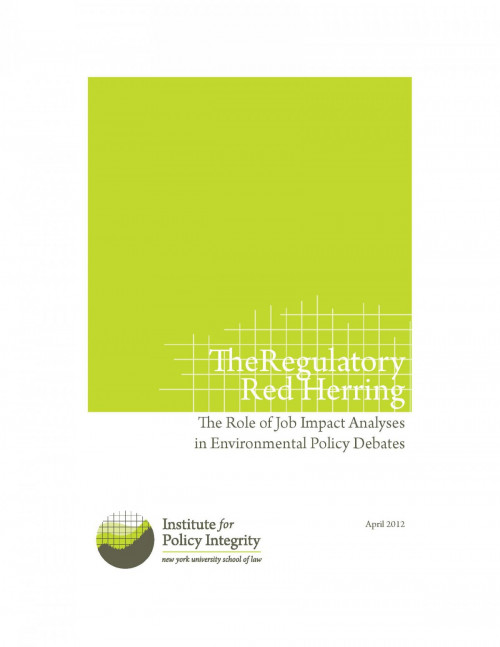
Regulatory Red Herring
The Role of Job Impact Analyses in Environmental Policy Debates
The debate on jobs and environmental regulation too often relies on thinly-supported forecasts about jobs “killed” or “created” by public protections. In the din, questions about larger costs and benefits of protections for clean air or water can get lost.
-
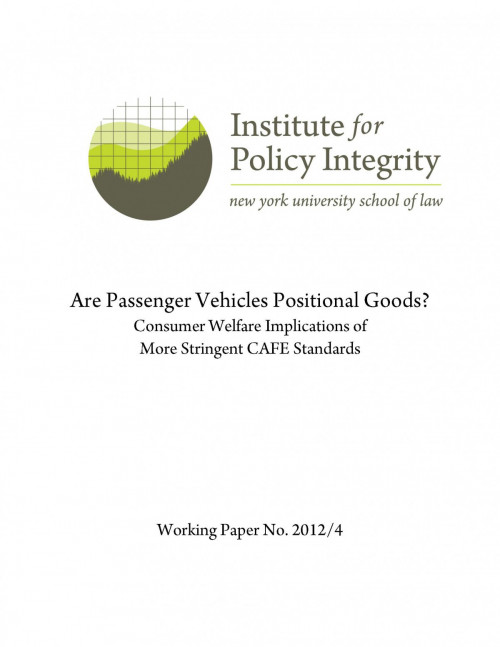
Are Passenger Vehicles Positional Goods?
Consumer Welfare Implications of More Stringent CAFE Standards
Are Passenger Vehicles Positional Goods? examines to what degree vehicles generate consumption externalities that are not currently corrected for by the market, and whether a
uniform downward shift in the size of the passenger vehicle fleet will actually result in reduced consumer welfare. -
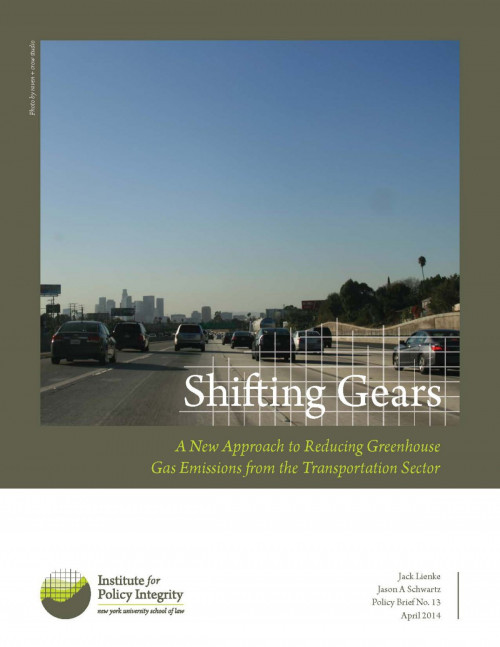
The Rebound Effect in a More Fuel Efficient Transportation Sector
Vehicle fuel efficiency improvements through Corporate Average Fuel Economy (CAFE) standards, may lead owners of more fuel-efficient cars may be driving more as their fuel cost per mile travelled decreases. It’s called the “rebound effect” and it has significant policy implications.
-
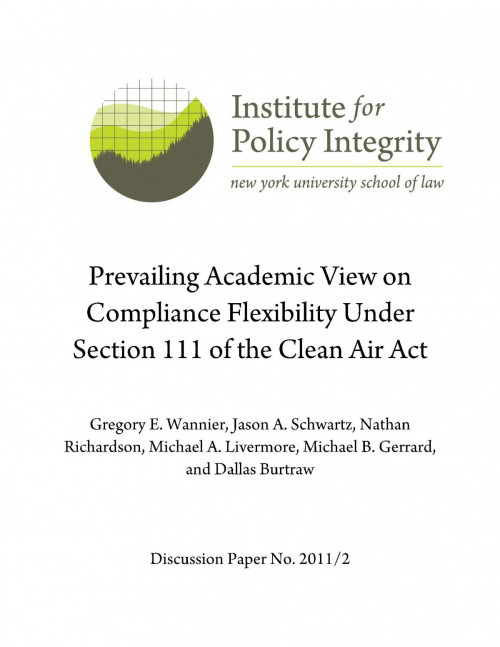
The Energy Paradox and the Future of Fuel Economy Regulation
Are the benefits of raising the fuel efficiency of America’s auto fleet greater than the costs? The answer may depend on whether or not there is an energy paradox.
-
_500_370_90.jpg)
Patience is a(n Economic) Virtue
Real Options, Natural Resources, and Offshore Oil
Consideration of real options is necessary to maximize economic return from non-renewable natural resource extraction. But ecisions over drilling are often framed as a now-or-never choice, so the option to wait (or “real option” value) is improperly treated in administrative processes that determine whether, when, and how offshore oil resources will be tapped.
-
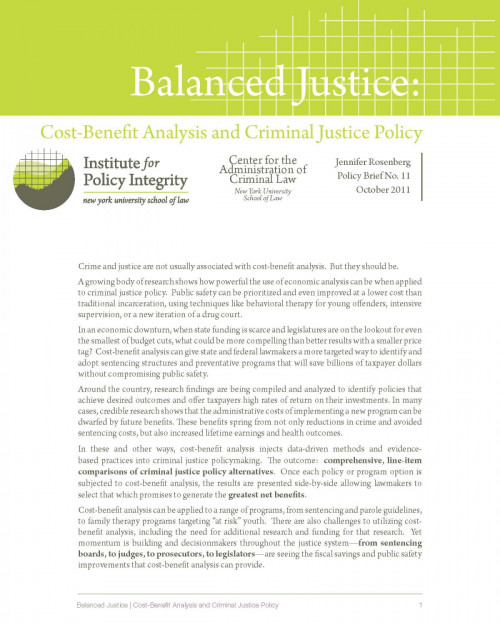
Balanced Justice
Cost-Benefit Analysis and Criminal Justice Policy
Crime and justice are not usually associated with cost-benefit analysis. But they should be, according to new research. This is especially true in an economic downturn, when government funding is scarce. In “Balanced Justice,” released jointly with the Center for the Administration of Criminal Law, author Jennifer Rosenberg reviews a growing body of research showing that counting the costs and benefits of our nation’s justice system can highlight areas of improvement that can save billions of taxpayer dollars without compromising public safety.
-
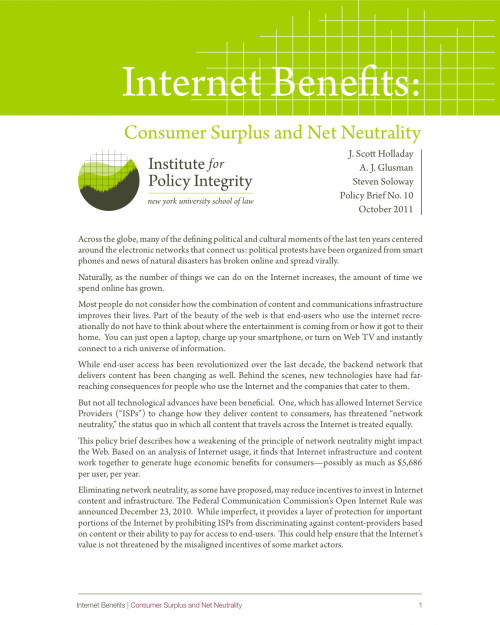
Internet Benefits
Consumer Surplus and Net Neutrality
This policy brief describes how a weakening of the principle of network neutrality might impact the Web. Based on an analysis of Internet usage, it finds that Internet infrastructure and content work together to generate huge economic benefits for consumers—possibly as much as $5,686 per user, per year.
Viewing recent projects in Publications
